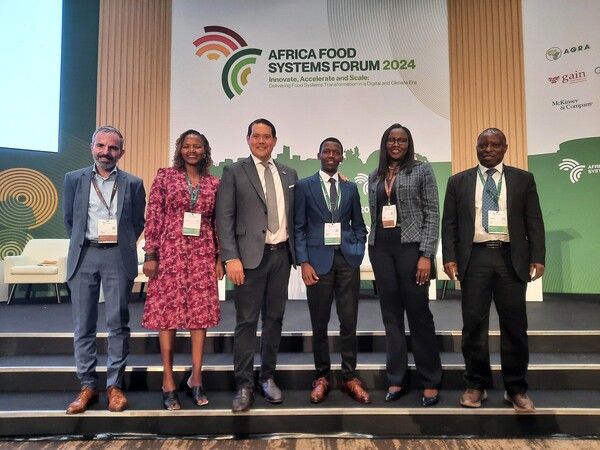Working towards a food-secure future for Africa is possible if we produce more with less and simultaneously rebuild the land.
This was the main message of the Regenerative Revolution: Building more sustainable solutions for smallholder farmers panel discussion ahead of the official opening of the Africa Food Systems Forum in Kigali, Rwanda.
Tapping into the expertise of leaders from Bayer, Opportunity International, and the International Potato Center, this event highlighted new regenerative interventions implemented across the agriculture value chain.
“One of the challenges in the transition to regenerative agriculture is to show smallholder farmers the value of these agronomic practices and how they can improve farm productivity and economic sustainability,” said Mildred Nadah Pita Bayer Head of Public Affairs and Sustainability Africa
She added that focusing on knowledge transfer, access to finance and inputs, and aligning policies to support regenerative agriculture are clear goals for industry partners and government agencies to achieve.
“The training and education of smallholder farmers in the art of regenerative agriculture is so important. We need both partners and platforms to help in this much-needed knowledge sharing, said Samuel Nsengiymva, a young Rwandan farmer associated with AgriResearch Unguka who represented the youth and smallholder farmers on stage.
Another discussion by panelists and audience members at the September 2 event centered around the need for even more collaboration and partnerships in the agricultural value chain to help farmers unlock the benefits of investing regenerative agricultural practices.
“Forging stronger partnerships in the agricultural value chain to serve farmers, is key to unlocking the potential of regenerative agriculture in the smallholder market,” says Jens Hartmann, Bayer Crop Science Head of EMEA Region.
“Regenerative agriculture comes down to producing more while restoring more. I believe we need a concerted effort to help farmers who are already bearing the brunt of climate change. We need to think about aspects like inputs, capacity, policies and tariffs. We need to be intentional about the tools we can use to support farmers and to determine what needs to be done to support them with skills training and knowledge transfer.”
WHY WE NEED REGEN AG
The world’s smallholder farmers produce a third of the global food supply. In Africa, this number is even higher with smallholder farmers responsible for up to 70-80% of food production in some countries. These farming communities are also the most at risk from the impacts of extreme poverty, climate change, and hunger. However, there is growing consensus in the scientific community that regenerative and adaptive practices can help combat the climate crises and the impact of climate change.
“The importance of focusing specifically on smallholder farmers’ acceptance and understanding of regenerative agricultural systems is crucial in Bayer’s mission of achieving Health for All, Hunger for None,” says Hartmann.
AUDIENCE SURVEY
The feedback from the audience survey was clear: Farmers want to gain more knowledge about regenerative agriculture and how it can benefit them. They also need easier access to financing and markets.
The panelists highlighted that more work needs to be done to improve the understanding and adoption of regenerative agricultural principles that keep the land productive, restore and preserve natural resources, and mitigate the effects of climate change:
“We need to align our efforts and definitions, be it in research, knowledge transfer or in farmer enablement. African farmers are already applying many elements of regenerative agriculture that help protect and improve soil health, biodiversity, and water sources. These efforts should be recognized and supported in the value chain and be encouraged through agricultural policies,” says Nadah Pita.

